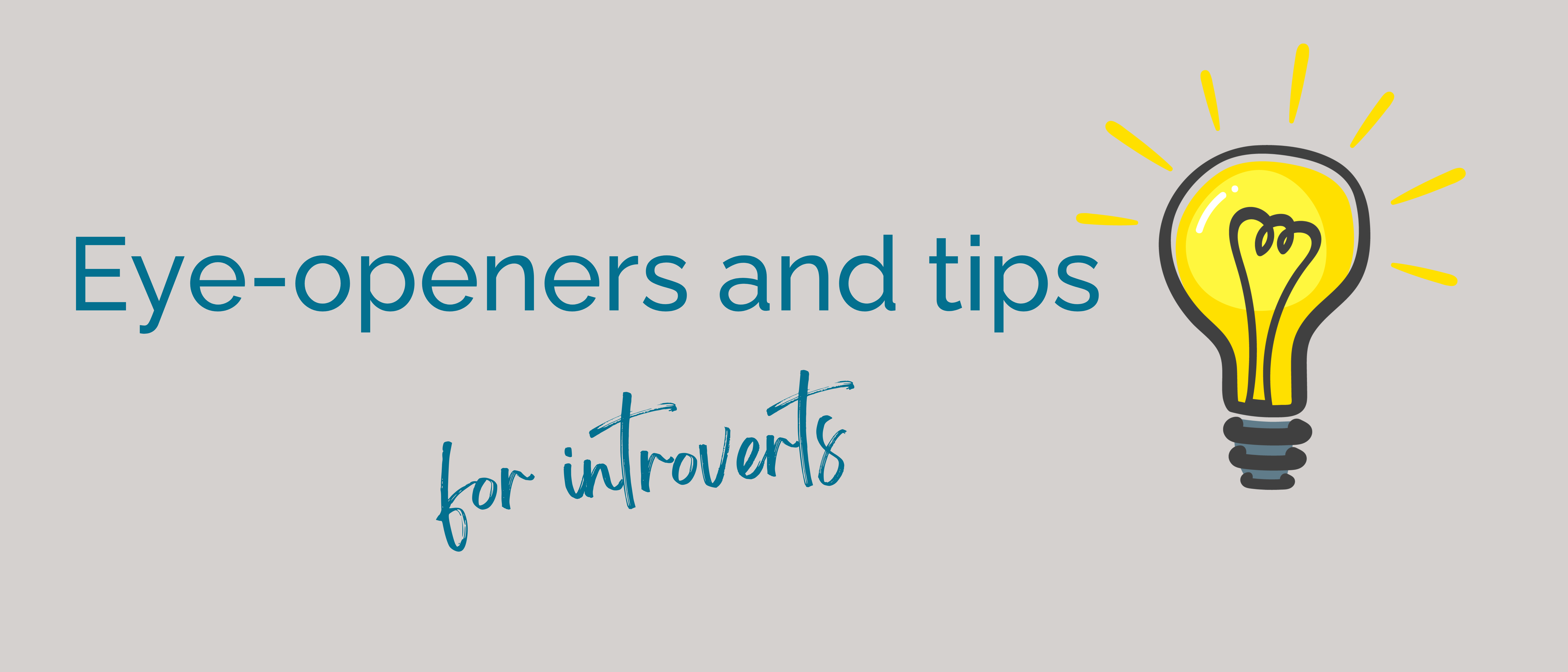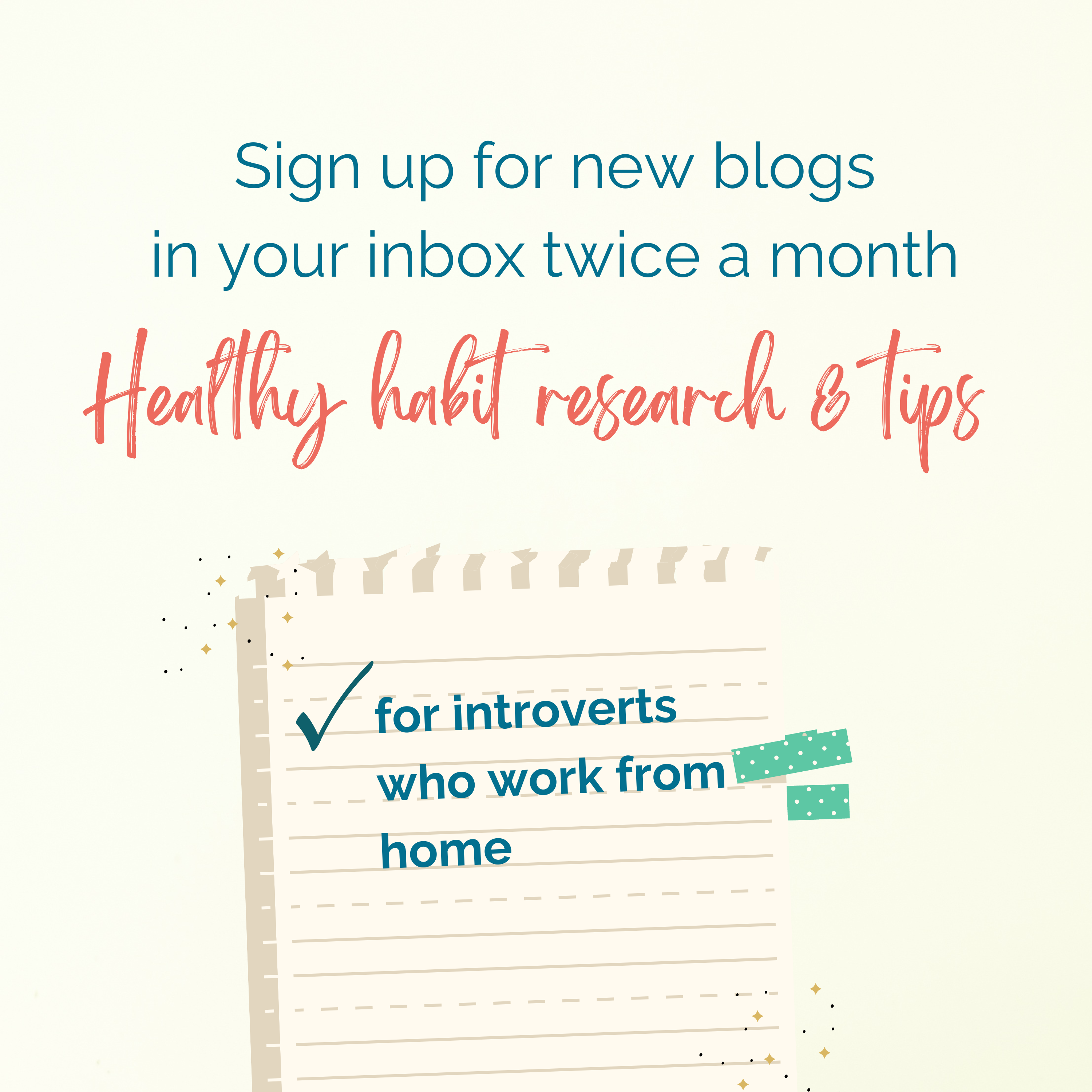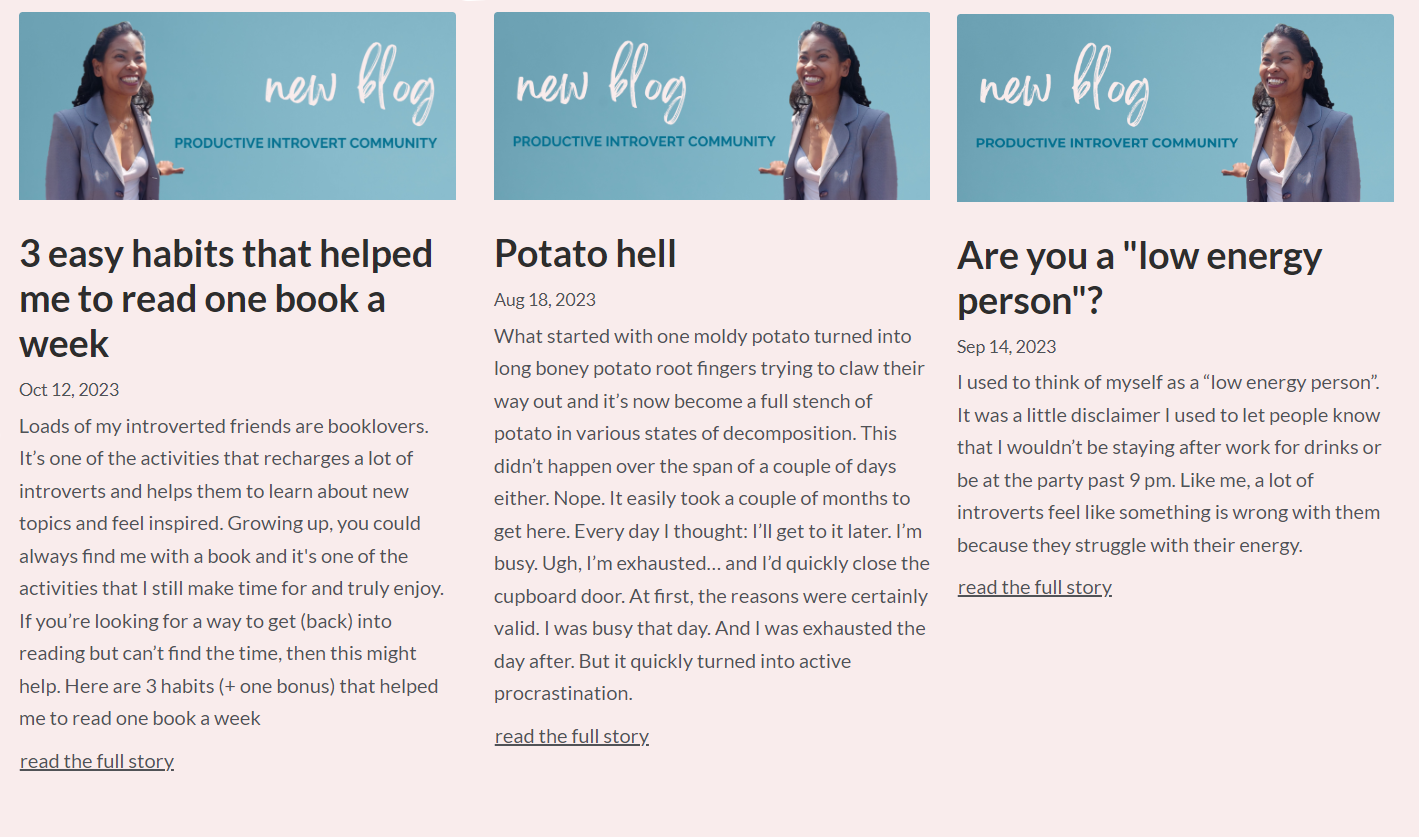-
1. Introvert hangover is when introverts feel physically and mentally drained after being in a very stimulating environment, usually one that includes a lot of socializing with other people.
-
2. The introvert hangover isn’t an official or scientific term and most of what you’ll find online is anecdotal i.e. people telling about their own experience with introvert hangover.
-
3. Studies have found that one of the differences between introverts and extroverts is that introverts are more sensitive to dopamine. This could explain why introverts get overstimulated more easily by things that don’t seen to have an effect on extroverts.
-
4. Although introvert hangover tends to catch a lot of us off guard, there is certain predictability to it. I’ve included a few questions to ask yourself to gain insight into which conditions and situations cause you to experience introvert hangover.
-
5. You don’t have to avoid busy social events all together. You can learn to manage your energy within the situation. One way is by using microbreaks to take short breathers away from the activity. I’ve included a few popular micro breaks that introverts use. Let it inspire you to create your own options.
-
6. Although these ideas are simple, it’s not always easy to do. It can be tricky to figure out how to manage your energy well in social situations. You may need to experiment a little to find your sweet spots.
-
References
Everything you need to know about introvert hangover

Introvert hangover: what is it, the science behind it, and how to prevent or recover from it.
I used to think that I was 'low energy' or maybe just a little bit sickly.
When I heard about introversion, a lot of things suddenly made sense. When I heard about the introvert hangover, a lot more things suddenly made sense 😆
A lot of introverts have experienced introvert hangover without realizing what was happening or why.
Maybe you’ve never heard of the introvert hangover or maybe you have experienced it before and you want some insights on how to deal with it.
In this chapter of PIC Podcast, we'll talk about what the introvert hangover is, the science behind it, and how to prevent it or recover from it.
Highlights
Full Summary
What is the introvert hangover?
The introvert hangover is when introverts feel physically and mentally drained after being in a very stimulating environment, usually one that includes a lot of socializing with other people.
You may come across the term “the highly sensitive hangover” because highly sensitive people experience something similar when they receive too much stimuli.
If you’re wondering if all highly sensitive people are introverts, the answer is no. Elaine Aron - who came up with the term highly sensitive person - estimates that 70% of highly sensitive people are introverted and the other 30% is extroverted 📖1.
The introvert hangover is sometimes also referred to as a social hang over, being socially drained, overstimulated or getting peopled out.
How do you know if you’re having an introvert hangover?
The thing that introverts notice most is feeling really tired and even unwell. Nausea, headaches, foggy brain, trouble concentrating and getting bothered by noises and lights.
Essentially, it feels very similar to a hangover after a night out drinking but it happens even when there was no alcohol involved.
It often happens after an activity with lots of socializing or lots of stimulation and you may feel an intense desire to be alone afterwards. Ideally curled up somewhere with a book but in extreme cases in a completely dark room with noise cancelling headphones on and a bag over their head. (Yeah, I’m only half joking).
An article on Introvert, Dear describes 12 signs that you might experience during an introvert hangover that include these above and a few others 📖2.
Is the introvert hangover a real thing?
The introvert hangover isn’t an official or scientific term. There isn’t really any research done about the topic itself and most of what you’ll find online is anecdotal i.e. people telling about their own experience with introvert hangover.
There are so many examples of this and introverts all over the world describe very similar reactions to “too much” socializing, that I think it’s definitely worth being aware of the introvert hangover.
I’ve personally also experienced the introvert hangover. For example, when I’ve been out all day, traveled a few hours to another city and spent a couple of hours with a friend. During the day, I can feel a bit tired but nothing major and I can thoroughly enjoy spending the time with that person. But then the next day, I’ll suddenly feel really ill with stomach issues, nausea, headaches and exhaustion. Very similar to what other people describe and this had been happening to me for years before I even heard of the term introvert hangover.
Because this kept happening to me but my friends didn’t seem to get ill from a day out, I thought that I was just a bit sickly, I internalized the idea of being a low energy person, and that I just couldn’t ‘handle’ as much as other people could.
Once I understood more about introverts and the introvert hangover, I could finally see that there was nothing wrong with me. I hope that reading this will do the same for you.
Differences between introverts and extroverts: dopamine in the brain
Even though the introvert hangover isn’t a scientifically used term, there is some interesting data about the difference between an introverts brain and an extroverts brain. One of the most interesting difference is how an introverts brain and an extroverts brain responds to dopamine.
When dopamine is released in the brain, it essentially signals pleasure. Dopamine triggers a quick boost in feeling pleasure and it activates a reward system to do more of that thing. Biologically we are wired to do things that give us instant pleasure and dopamine is at the center of that.
That’s why dopamine is often referred to as ‘ the happy hormone’ (although this isn’t the full story about dopamine).
What does this have to do with introverts and extroverts?
One of the differences between introverts and extroverts that studies found is that introverts are more sensitive to dopamine 📖3.
That means that with a low level of dopamine, an introvert’s brain already gets the quick boost in feeling pleasure. While extroverts need a much higher level of dopamine to get that same pleasure signal.
Dopamine gets released e.g. by a stimulus from outside - think of delicious food, an interesting conversation with someone, touching someone but also things like lights flickering on and off or background noise in a supermarket.
Since introverts need much less of these stimuli to get a high release of dopamine than extroverts do, it could explain why introverts get overstimulated more easily by things that don’t seen to have an effect on extroverts.
There are studies that found other differences in the brains of introverts and extroverts, like blood flow and other hormone signaling. Some of these are described in Marti Olsen Laney’s book “The introvert advantage” 📖4.
Understanding the differences between introverts and extroverts sheds light on why we have different needs when it comes to energy management and what we need to focus.
What can you learn from this?
First of all, if you’re an introvert and you’ve experienced sudden crashes in energy, I want you to know that you’re not alone. There’s nothing wrong with you and there are people all over the world experiencing this also.
One thing that bothers a lot of introverts is that introvert hangover can feel sudden and unpredictable. But there is actually a predictability about it. There are certain conditions and situations cause you to have an introvert hangover. Observe what those conditions are and you can have simple habits in place to help you through it. It doesn’t have to be something that catches you by off guard anymore.
Pay attention to how your energy level, your mood and your behavior change in certain situations e.g. where there’s a lot of going on around you, you’re interacting with (a lot of) people, with large groups or even certain types of people. This will give you clues to what type of situations overstimulate you.
Here are a few questions that you can ask yourself:
- Do I feel energized or drained after I interact with this person/ this group of people?
- What did I feel like doing after immediately or even the next day?
- Did I feel recharged after a good night of sleep?
Especially if you notice that a good night’s sleep doesn’t help you to recharge, then that is a sign that you were overstimulated. When introverts are mentally drained, sleep doesn’t help them to fully recharge. You can get 10 hours of sleep and still feel messed up if you’re experiencing an introvert hangover.
Tips to prevent or recover from introvert hangover
Let’s say that you’re at an event and you feel that it’s all becoming a bit too much. What a lot of introverts do is sit there, slowly withering away and then they’ll be MIA for 2 weeks. At least, that’s what I used to do before I started making my personal energy management a priority.
Once you become more aware of what situations cause an introvert hangover for you, it doesn’t necessarily mean that you need to avoid those situations outright.
I believe that the question: ‘How important is this to me really and do I need to keep doing it?’ is the most important question you can ask when it comes to energy management and time management. Remember that ‘no’ is a full sentence 😉
But you don’t have to avoid social events all together. You can learn to manage your energy within the situation.
Instead of avoiding busy social events outright, you can try focusing on micro breaks. These are short breaks (think 5-10 minutes) that you can take to get a little bit of a breather from all the activity.
Examples of micro-breaks
Start by asking yourself: What are 5 simple things that I could do to take a short break when things become too much?
Here are some examples:
- Play with the dog/cat/ kids. Any small creature makes an excellent playmate for a micro break.
- Short walk outside. Simply excuse yourself, go outside and walk around the building. No easy access to get outside? Step onto the balcony. Even staying in the bathroom for 5 minutes extra makes for a great micro-break (I know, it seems like you’re in there FOREVER but most people will hardly notice).
- Slowly admire every single ornament on the Christmas tree. It was close to Christmas when I wrote this and this is one of my best tricks. Bonus points if you point out your favorite ornament to the host later.
- Wash the dishes. An oldy but goody and a best-kept secret among many of my introverted friends. I know a lot of introverts who do this because people rarely bother you when you’re washing dishes and you can take a break and feel useful at the same time!
- Bring a book. I especially like to do this when I’m with close family and friends or when I’m staying somewhere overnight. I bring a book and pick a seat at the far end of the room. Whenever I need some quiet time, I read a few pages. Sometimes, I’ll even put in earplugs to cut down the background noise.
The first time I took short breaks at an event, I was worried that everyone would think I was weird. And, well, some people probably do think it’s a little bit weird but they eventually get used to it (and most lovingly accept it).
Although these ideas are simple, it’s not always easy to do
It can be tricky to figure out how to manage your energy well in social situations. You may need to experiment a little to find your sweet spots.
If you want help figuring this out, then I’d love to help.
I invite you to book a free exploration call to help you discover a will-power free way to have more energy & focus, no matter how busy or overwhelmed you are. You can access my calendar to book a call here.

Read more?
About the author
Mariella Franker, PhD is a former scientific writer and an introvert. She teaches introverts who work from home how to create healthy habits so that they have more energy & improve focus without habits that feel forced or only last 2 weeks.
She's a certified Natural Advantage® coach, associate coach at De Succesvolle Introvert, and founder at The Franker Message. She has been featured in places such as Cheeky Scientist, Quiet and Strong podcast, and MarieTV.
A first generation immigrant from South America, she now lives in the Netherlands with her husband and son. On most days, you'll find her working in her little office cabin or puttering around her home or garden.
Go to related blogs
References
📖1 According to Elaine Aron (who coined the term highly sensitive person HSP) 70% of HSPs are introverts: https://hsperson.com/faq/how-do-i-know-for-sure/
📖2 12 Signs You Have an ‘Introvert Hangover’ (Yes, It’s Real) on Introvert, Dear: https://introvertdear.com/news/introvert-hangover-signs/
📖3 About dopamine sensitivity in introverts vs extroverts "On the Psychobiology of Personality: Essays in Honor of Marvin Zuckerman”, edited by Robert M Stelmack: https://books.google.nl/books?id=swhd33LCBqcC&lpg=PA409&ots=E2xBnGII6r&dq=dopamine sensitivity introverts&lr&pg=PA411#v=onepage&q=dopamine sensitivity introverts&f=false
📖4 Book “Introvert advantage” by Marti Olsen Laney on Amazon: https://a.co/d/a5goagk


